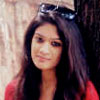The first emotion of my parents, when they saw my ‘98% score in business studies’ in my 12th CBSE board exam result in 2012, was of overwhelming joy and pride. This lasted only for a moment, and faded as they anxiously scrolled down on the computer screen to check marks of my other papers. To their horror, I scored only an ‘87’ in English Core. Suddenly, a wave of fear crossed their hearts, because despite my scores being above 90 in the remaining subjects, they assumed my overall percentage will not meet the cut-offs set by top colleges in the Delhi University. They were certain I wouldn’t get the course of my choice. My aspiration was frozen by fear of denial.
Cut to 2015. Delhi University declared the first cut-off list for various undergraduate courses. They sky rocketed with 99% for English (Hons) in St. Stephen’s, 98.7% for economics (hons) in Shri Ram College of Commerce, 98% in hindu and Hansraj college to name a few.
The absurdity took a new route, where cut-offs have now increased to more than 100%. Students, who did not study economics in school, will have to score 100.75% in the best-of-four (BO4) subjects to secure a seat in economics at SRCC or Hans Raj. Similarly, at Lady Shri Ram, an aspirant needs to have an aggregate score of 100.5% to get into the psychology (hons) course. Is it an implicit way of barring students from studying this course for reasons that are amusingly none.
It all begins when students complete class 11th and are enrolled in the much-awaited 12th standard. Teachers and parents unceasingly lecture children on the ‘importance and significance of class 12 boards’ and how it will shape the “future and purpose of their lives”. This marks the beginning of hours of studying and mugging up of chapters, solving question papers and deriving certain patterns of previous year papers, betting with friends on the possible questions and inexcusable time and money spent on tuitions and coaching centres.
Students aspiring for admission in Delhi University work hard to score in the final board examination. But the soaring cut-offs for admissions have added to the pressure and anxiety. This has resulted in adoption of unconventional ways of studying. English literature questions are expected to be answered rather objectively in a specific way with all the points in place, while subjectivity and originality treated subserviently. Student scoring a 100 or 98 in english is truly stupefying!
Similarly in Math, most students learn formulae oblivious to its derivation, and textbook solved questions are cramped up on grounds of them being under the category of ‘HOT’ (Higher Order Thinking) questions. Chapters in all subjects are learnt mindlessly in order to reciprocate the same language in papers. Room for questions like “why” and “how” has taken a back seat.
Having fallen prey to this incongruous scheme hitherto raises a serious question whether the child is even inheritably learning anything in the process. Education is a path for systematic analysis of various concepts and broadening of mental capacities to achieve clarity. Its purpose is to guide students to fields of special interest and provide base for actualizing potential. Instead, the current way prohibits learning and limits children to mere puppets of an inane Indian education system.
